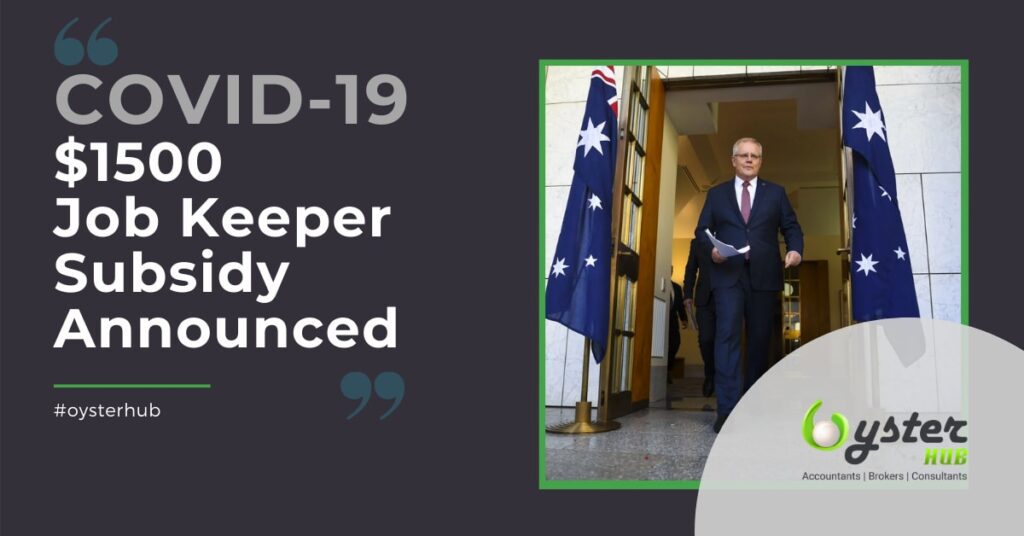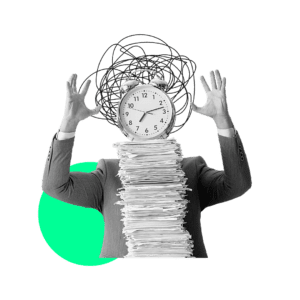Navigating the JobKeeper Payment: Support for Employers and Employees Amidst the Coronavirus Crisis
Under the JobKeeper Payment, businesses impacted by the coronavirus will be able to access a subsidy from the Government to continue paying their employees. Affected employers will be able to claim a fortnightly payment of $1,500 per eligible employee from 30 March 2020, for a maximum period of 6 months.
Fact sheet
Supporting businesses to retain jobs
Overview
The JobKeeper Payment is a temporary scheme open to businesses impacted by the coronavirus. The JobKeeper Payment will also be available to the self-employed. The Government will provide $1,500 per fortnight per employee for up to 6 months. The JobKeeper Payment will support employers to maintain their connection to their employees. These connections will enable businesses to reactivate their operations quickly – without having to rehire staff – when the crisis is over.
Eligible employers
Employers will be eligible for the subsidy if:
- Their business has a turnover of less than $1 billion and their turnover will be reduced by more than 30 per cent relative to a comparable period a year ago (of at least a month), or
- Their business has a turnover of $1 billion or more and their turnover will be reduced by more than 50 per cent relative to a comparable period a year ago (of at least a month), and
- The business is not subject to the Major Bank Levy
- The employer must have been in an employment relationship with eligible employees as at 1 March 2020, and confirm that each eligible employee is currently engaged in order to receive JobKeeper Payments.
- Not-for-profit entities (including charities) and self-employed individuals (businesses without employees) that meet the turnover tests that apply for businesses are eligible to apply for JobKeeper Payments.
Fact sheet
JobKeeper payment – Information for employers
Eligible employees
Eligible employees are employees who:
- are currently employed by the eligible employer (including those stood down or re-hired);
- were employed by the employer at 1 March 2020
- are full-time, part-time, or long-term casuals (a casual employed on a regular basis for longer than 12 months as at 1 March 2020)
- are at least 16 years of age
- are an Australian citizen, the holder of a permanent visa, a Protected Special Category Visa Holder, a non-protected Special Category Visa Holder who has been residing continually in Australia for 10 years or more, or a Special Category (Subclass 444) Visa Holder
- are not in receipt of a JobKeeper Payment from another employer.
If your employees receive the JobKeeper Payment, this may affect their eligibility for payments from Services Australia as they must report their JobKeeper payment as income.
Fact sheet
JobKeeper payment – Information for employers
Payment process
Eligible employers will be paid $1,500 per fortnight per eligible employee. Eligible employees will receive, at a minimum, $1,500 per fortnight, before tax, and employers can top-up the payment. Where employers participate in the scheme, their employees will receive this payment as follows.
- If an employee ordinarily receives $1,500 or more in income per fortnight before tax, they will continue to receive their regular income according to their prevailing workplace arrangements. The JobKeeper Payment will assist their employer to continue operating by subsidising all or part of the income of their employee(s).
- If an employee ordinarily receives less than $1,500 in income per fortnight before tax, their employer must pay their employee, at a minimum, $1,500 per fortnight, before tax.
- If an employee has been stood down, their employer must pay their employee, at a minimum, $1,500 per fortnight, before tax.
- If an employee was employed on 1 March 2020, subsequently ceased employment with their employer, and then has been re-engaged by the same eligible employer, the employee will receive, at a minimum, $1,500 per fortnight, before tax.
It will be up to the employer if they want to pay superannuation on any additional wage paid because of the JobKeeper Payment. Payments will be made to the employer monthly in arrears by the ATO.
Timing
The subsidy will start on 30 March 2020, with the first payments to be received by employers in the first week of May. Businesses will be able to register their interest in participating in the Payment from 30 March 2020 on the ATO website.
Businesses with employees
Initially, employers can register their interest in applying for the JobKeeper Payment via The Australian Taxation Office (ATO) from 30 March 2020.
Subsequently, eligible employers will be able to apply for the scheme using an online application. The first payment will be received by employers from the ATO in the first week of May. Eligible employers will need to identify eligible employees for JobKeeper Payments and must provide monthly updates to the ATO. Participating employers will be required to ensure eligible employees will receive, at a minimum, $1,500 per fortnight, before tax. It will be up to the employer if they want to pay superannuation on any additional wage paid because of the JobKeeper Payment.
Further details for businesses for employees will be provided on ato.gov.au.
Businesses without employees
Businesses without employees, such as the self-employed, can register their interest in applying for JobKeeper Payment via The Australian Taxation Office (ATO) from 30 March 2020.
Businesses without employees will need to provide an ABN for their business, nominate an individual to receive the payment and provide that individual’s Tax File Number and provide a declaration as to recent business activity.
Self-employed people will need to provide a monthly update to the ATO to declare their continued eligibility for the payments. Payment will be made monthly to the individual’s bank account.
Example of the JobKeeper Payment
Self-employed
Melissa is a sole trader running a florist. She does not have employees. Melissa’s business has been in operation for several years. The economic downturn due to the Coronavirus has adversely affected Melissa’s business, and she expects that her business turnover will fall by more than 30 per cent compared to a typical month in 2019.
Melissa will be able to apply for the JobKeeper Payment and would receive $1,500 per fortnight before tax, paid every month.
Worker with multiple jobs
Michelle currently works two permanent part-time jobs, at an art gallery during weekdays, and at the local café on the weekend. Due to the impact of the Coronavirus, the gallery has closed and Michelle has been stood down without pay under the Fair Work Act. Michelle continues to work at the café delivering takeaway orders.
Michelle can only receive the JobKeeper Payment once, from the employer from whom she nominates as her primary employer. As Michelle only claims the tax-free threshold from her job at the art gallery, this will be treated as her nomination of the art gallery as her primary employer.
The art gallery is eligible for the JobKeeper Payment. The art gallery will pass the JobKeeper Payment on to Michelle, so she will receive $1,500 per fortnight before tax. During the application process, the art gallery will notify the ATO that Michelle receives the payment from them. The art gallery is also required to advise Michelle that she has been nominated to the ATO as an eligible employee to receive the payment.
The café is not eligible to receive the JobKeeper Payment for Michelle. The income that Michelle receives from her job at the café does not change her entitlement to the JobKeeper Payment she receives from the art gallery.
An employee made redundant after 1 March
Miles worked as a permanent part-time personal trainer at a gym for six months and was made redundant on 20 March 2020 in response to the Government directive that gyms close. Miles was not entitled to redundancy pay due to his length of service.
In response to the announcement of the JobKeeper Payment, the gym decides they want to re-engage Miles so they are well placed to resume their operations once the Coronavirus restrictions are lifted.
After being made redundant, Miles registered an intent to claim with Services Australia for access to the JobSeeker Payment and the Coronavirus Supplement. Miles is single, with no children and in total, he would be eligible to receive $1,124.50 before tax per fortnight.
If Miles chooses to be re-hired by the gym, under the JobKeeper Payment he will receive $1,500 a fortnight before tax while he is stood down. Miles will need to advise Services Australia of his income. He is no longer eligible for the JobSeeker Payment and the Coronavirus Supplement from Services Australia as a result of receiving the JobKeeper Payment.
An employer with 5 employees who all currently get paid more than $1,500 per fortnight
Sara runs a landscaping company and employs five full-time gardeners. Sara is paying her employees $1,700 per fortnight before tax. She expects that her turnover will decline by more than 30 per cent over the coming months and that she will either need to lay staff off or reduce their wages significantly.
As a result of the JobKeeper Payment, Sara will be able to keep employing every gardener and only needs to pay the $200 wage cost per fortnight before tax per employee above the $1,500 per fortnight (before tax) JobKeeper Payment.
An employee who has been stood down and applied for income support
Phoebe works in administration services of a large retail company as a permanent full-time employee, but she has been stood down under the Fair Work Act without pay. Phoebe had registered an intent to claim with Services Australia for access to the JobSeeker Payment and the Coronavirus Supplement. Phoebe is single, with no children and in total she would be eligible to receive $1,124.50 before tax per fortnight from Services Australia.
Phoebe’s employer has decided to apply for the JobKeeper Payment for all its eligible employees for up to six months. This would entitle Phoebe to $1,500 per fortnight before tax. Phoebe’s employer is required to advise her that she has been nominated as an eligible employee to receive the payment.
If Phoebe elects to receive income support through Services Australia, she will need to report her income from the JobKeeper Payment to Services Australia. Phoebe may no longer be eligible for income support from Services Australia as a result of receiving the JobKeeper Payment.


















